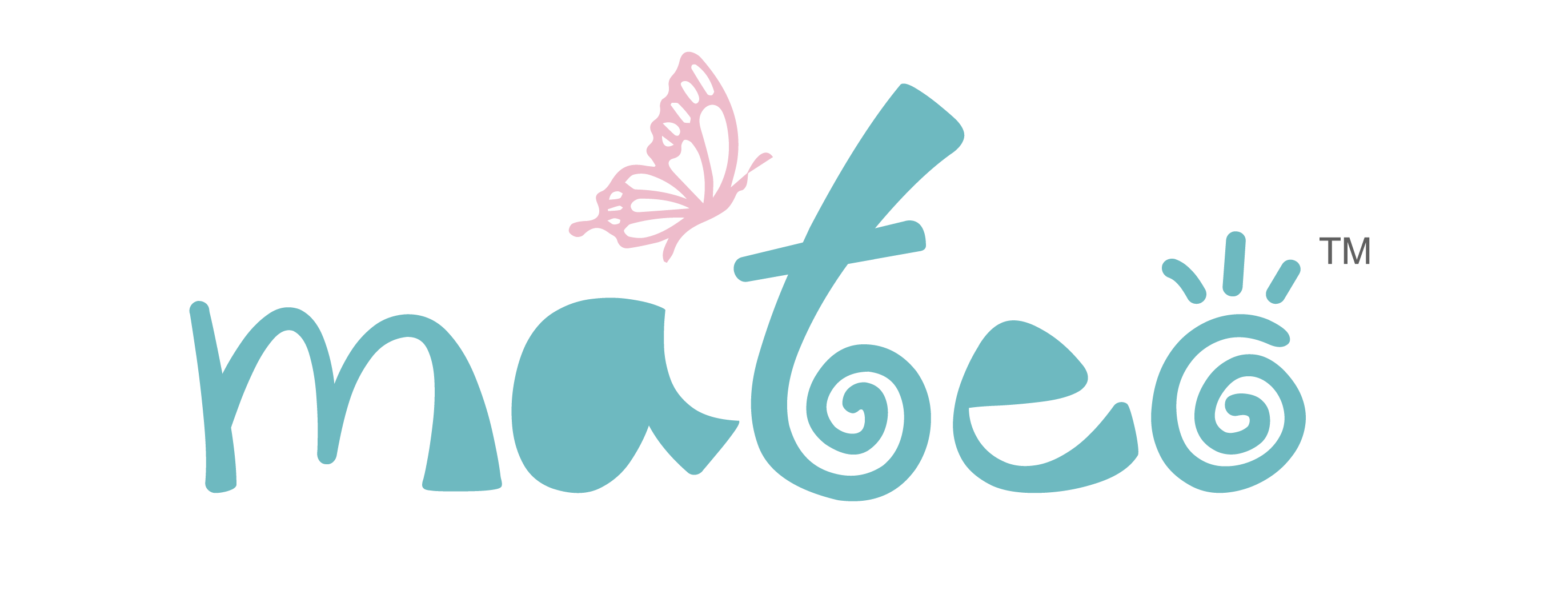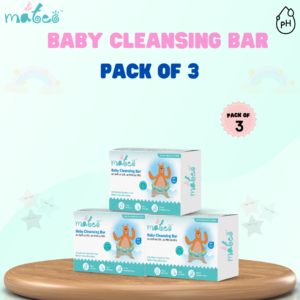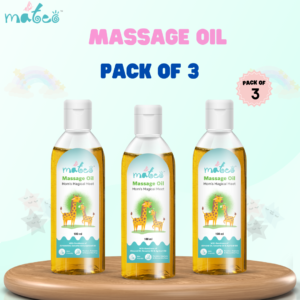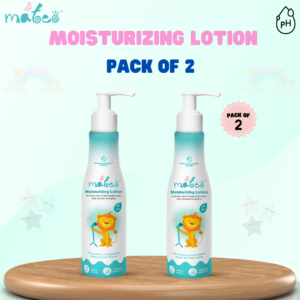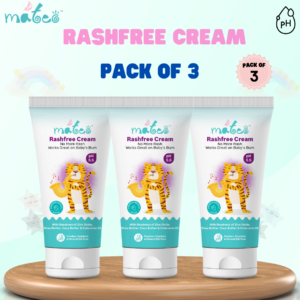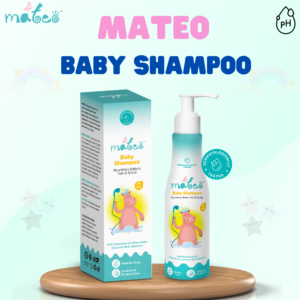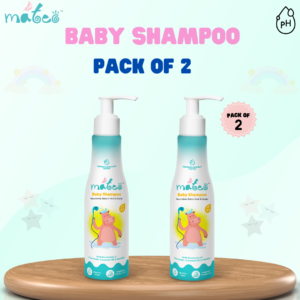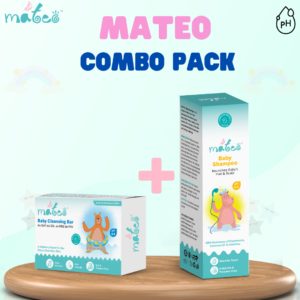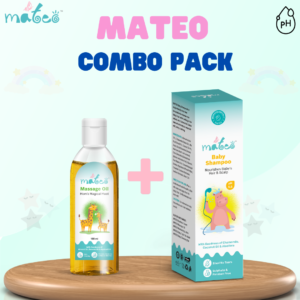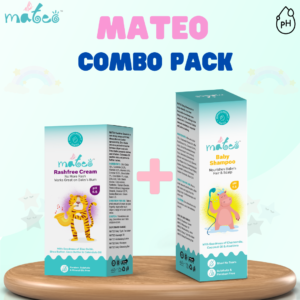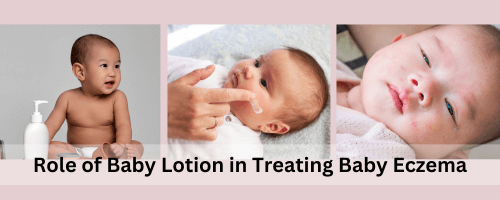
The Role of Baby Lotion in Treating Baby Eczema
Table of Contents
- What is Baby Eczema?
- Why Do Babies Get Eczema?
- How Can Baby Lotion Help with Eczema?
- Is It Good to Use Lotion to Treat Baby Eczema?
- What Are the Alternative Treatments for Baby Eczema?
- FAQs
As parents, one of our top priorities is making sure that our children are comfortable and safe. When our children experience skin disorders like atopic dermatitis, also known as baby eczema, it can be upsetting. Parents must discover efficient methods for managing baby eczema because it manifests as red, itchy, and irritated skin patches. Given its popularity in treating irritated skin, baby lotion for eczema is frequently used to treat this ailment.
The causes of baby eczema will be discussed in this blog, along with how to cure eczema, a common skin condition with baby lotion. We will also look at alternate therapies and examine the benefits and drawbacks of using baby moisturising lotion to treat infant eczema.
What is Baby Eczema?
Eczema is a chronic skin condition characterised by red, itchy, and irritated skin. Atopic dermatitis is sometimes referred to as eczema. When it affects babies, it is known as baby eczema. Patches of dry, scaly skin are a common symptom of this condition on different parts of the baby’s body. The fact that eczema is not contagious and is more common in families with a history of allergies or asthma should be noted. Baby eczema can be challenging for both the baby and the parents because the constant scratching can disrupt sleep and make the baby generally irritable.
Why Do Babies Get Eczema?
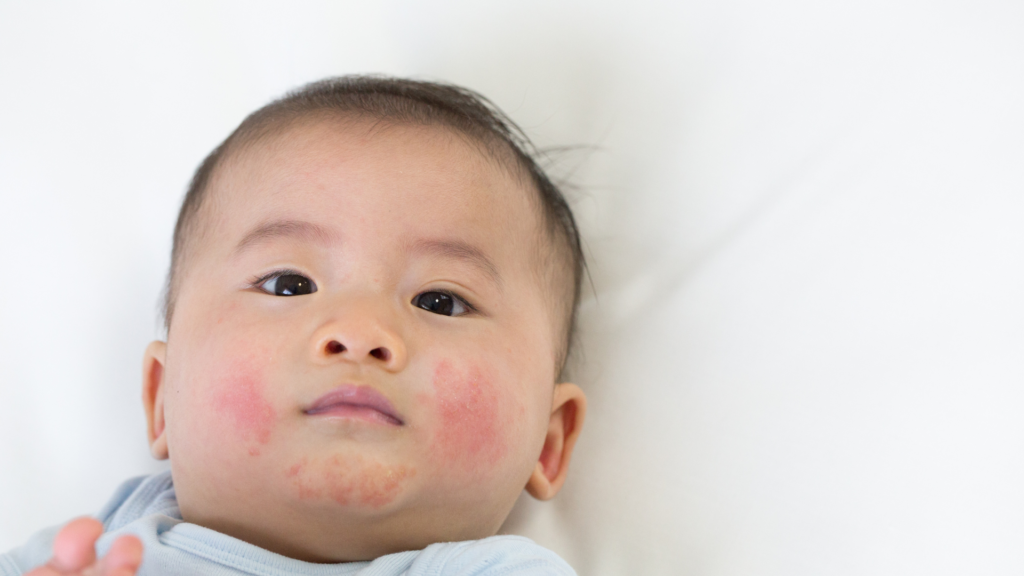
While eczema’s exact aetiology is still under investigation, genetic and environmental factors are typically thought to be involved. The following are the main causes of infant eczema development:
Genetics: A baby’s chance of acquiring eczema is increased by a family history of allergies or the condition. It is thought that some genes predispose a youngster to this illness.
Skin Barrier Function: Babies’ sensitive skin is very thin and delicate, making them more prone to irritability. In some instances, the skin’s natural barrier, which aids in moisture retention and defends against irritants, may not perform at its best in young children with eczema.
Environmental Triggers: Eczema in infants can be brought on or made worse by allergens, irritants, and environmental causes. Pollen, pet dander, dust mites, particular meals, and contact with harsh soaps or detergents are a few examples of these triggers.
Immunological system: The development of eczema may also be influenced by an excessive immunological response. In this case, frequent irritants cause the immune system to overreact, resulting in skin inflammation.
How Can Baby Lotion Help with Eczema?
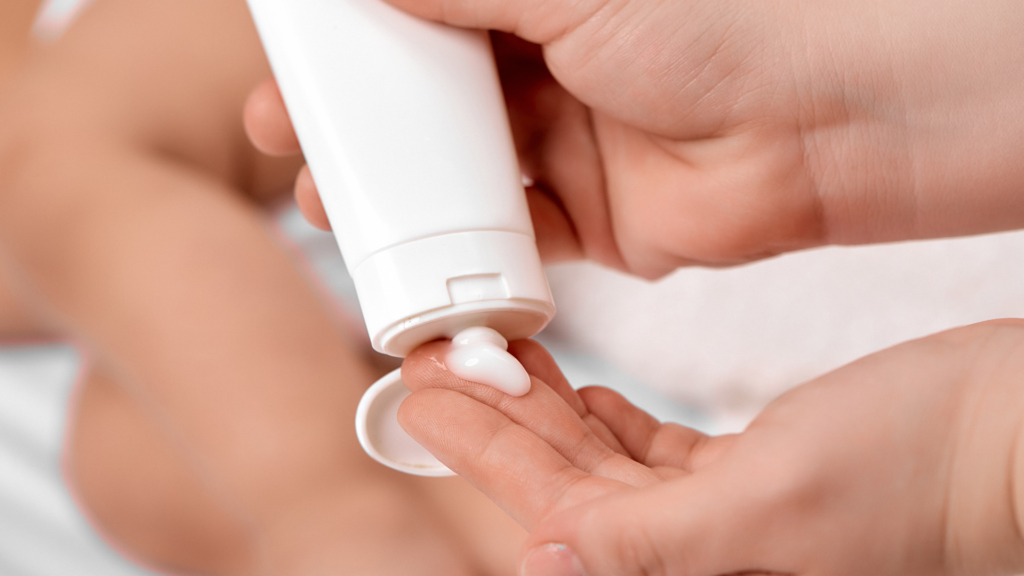
Baby lotion for eczema can be an effective aid in treating infant eczema for a number of reasons:
Hydration: The key to managing eczema is to keep the skin well-hydrated. More irritation and itching often develop on dry skin. Infant moisturising lotion is made to deliver moisture and keep it there, which can help calm the skin and lower the chance of flare-ups.
Barrier Function: Many infant lotions are designed to enhance the skin’s built-in defences. As it helps stop allergens from reaching the skin and escalating inflammation, this can be very helpful for infants with eczema.
Baby moisturising creams frequently include chemicals that can help soothe itchiness and pain. As a result of these calming elements, the infant may feel less tempted to itch its delicate skin.
Baby lotions often have gentle formulations because of the sensitive nature of a baby’s skin. They are soft, hypoallergenic, and chemically free, making them safe for use on infants who have eczema.
Is It Good to Use Lotion to Treat Baby Eczema?
Baby lotion for eczema can be a useful tool for treating infant eczema, but for safety and efficiency, it’s crucial to go by a few precise rules:
Consult a Paediatrician: It’s a wise idea to speak with a dermatologist or paediatrician before using any baby lotion or baby rashfree cream for eczema. They can advise you on how to handle the problem and administer the required drugs.
Select the Appropriate Lotion: Not all infant lotions are created equal. Choose a lotion or baby rashfree cream that is free of scents, colours, and other potentially irritating ingredients if your skin is soft and sensitive. Beneficial components like ceramides may be present in some lotions created for skin that is prone to eczema.
Consistent Application: Baby moisturising lotion should be used regularly to effectively treat eczema. Maintaining a consistent skincare routine can help reduce flare-ups and keep the skin moisturised.
Avoid Triggers: In addition to applying baby lotion, it’s critical to identify and keep your baby’s eczema from being triggered by any potential triggers. This may entail switching laundry detergents, reducing exposure to pet dander, and making sure the environment is clean and allergen-free.
What Are the Alternative Treatments for Baby Eczema?
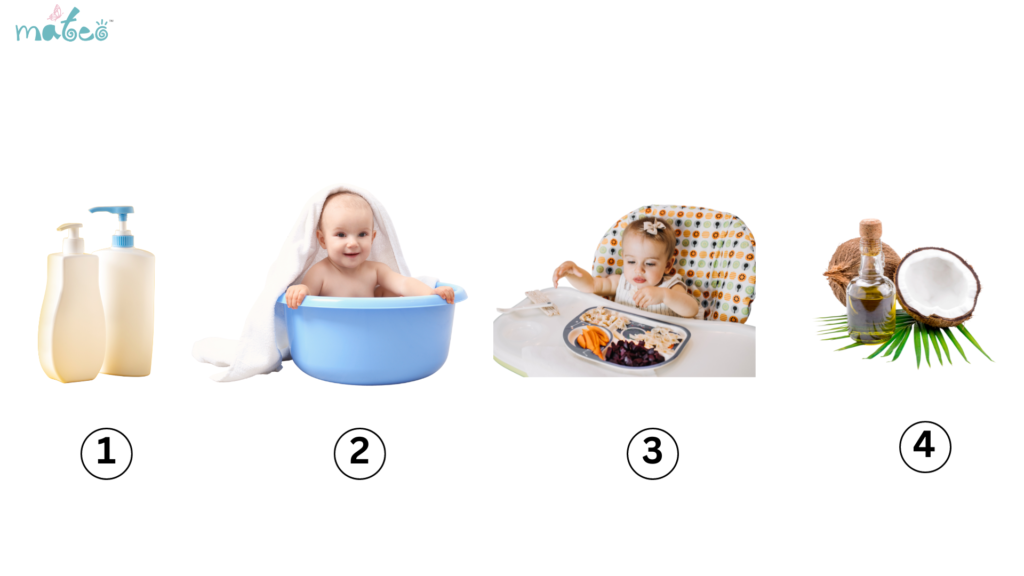
Although baby lotion can be helpful, it might not be the only way to treat infant eczema. There are more therapies and tactics to think about, depending on the condition’s severity and your baby’s particular requirements:
- Prescription drugs: To lessen inflammation and itching in more severe infant eczema instances, a paediatrician or dermatologist may recommend topical corticosteroids or non-steroidal creams. It’s crucial to take these medications as directed by a healthcare provider.
- Establish a regular bathing and moisturising schedule for your infant. Wash their skin with lukewarm water and a gentle, fragrance-free cleanser. Apply an appropriate moisturiser to the skin after a shower or bath.
- When there is significant inflammation, wet wrap therapy may be beneficial. To keep the moisture in, it involves moisturising the skin and then wrapping it in wet bandages. This method should only be utilised in the presence of a doctor, despite the fact that it can provide immediate relief.
- Eliminating Triggers: Finding and avoiding eczema triggers, such as allergies, irritants, and certain foods, is one method of controlling the condition. Changing your baby’s environment or food may be necessary to achieve this.
- Research suggests that probiotics may be able to lower the severity of an infant’s eczema symptoms. Consult your doctor before giving your infant probiotics.
- Natural Solutions: Some parents look into natural treatments for infant eczema, such as calendula lotion, oatmeal baths, or coconut oil. While some newborns may find comfort from these methods, it is advisable to speak with a healthcare professional before implementing any at-home cures.
Mateo baby moisturising lotion can effectively help with eczema and is dermatologically recommended. These products are pH 5.5 balanced that protects baby-sensitive skin and nourish healthy skin. In conclusion, baby eczema can be challenging for both parents and children. While baby lotion can hydrate the skin, improve the skin barrier, and provide itch relief, it must be used carefully and under the guidance of a healthcare professional. Alternate forms of treatment and a change in lifestyle can also be effective in controlling baby eczema. By working together with a paediatrician or dermatologist, parents can develop a tailored plan to keep their baby’s skin soft, smooth, and comfortable while minimising the aggravation brought on by eczema.
Frequently Asked Questions
1. What exactly is baby eczema?
Eczema is a chronic skin disorder that causes red, itchy skin that is irritated and inflamed; when it affects infants, it is referred to as baby eczema. It frequently manifests as patches of dry, scaly skin on various sections of a baby’s body. The fact that eczema is not communicable and frequently occurs in families with a history of allergies or asthma should not be overlooked. The frequent scratching that results in sleep disruption and irritability in babies with eczema can be difficult for both the baby and the parents.
2. Why Do Babies Develop Eczema?
Eczema is considered to be impacted by both hereditary and environmental factors, while its specific aetiology is still unknown. Infant eczema development is primarily influenced by genetics, the effectiveness of the skin’s barrier, environmental stimuli such as allergens and irritants, and an overactive immune response that results in skin inflammation.
3. What Effect Does Baby Lotion Have on Eczema?
For a number of reasons, baby lotion for eczema can be helpful in treating newborn eczema. It aids in hydration, strengthens the skin’s protective barrier, and could include comforting substances to lessen itching and pain. Baby lotions can be applied to infants with eczema since they are mild and hypoallergenic in their formulation. When applying any lotion to a newborn with eczema, it is crucial to use caution and seek the advice of a healthcare practitioner.

Nivethitha Sridharan
Nivethitha is a mother of two children and has a great interest in writing as an experienced mother. She publishes educational and interesting articles on baby care and also assists parents in selecting the finest baby products for their baby’s skin and well-being. She focuses on infant skin care and health issues. She also provides suggestions and guidance on baby care and avoids common skin disorders in newborns. Nivethitha likes studying and writing about new and innovative ideas that might assist people in finding solutions to their problems. She feels that content writing is an effective means of communicating thoughts and information to the world.
-
Mateo Baby Cleansing Bar – 75gm (Pack of 3)
₹555.00Add to cart -
Mateo Baby Massage Oil – 100ml (Pack of 3)
₹585.00Add to cart -
Mateo Baby Moisturizing Lotion – 200ml (Pack of 2)
₹700.00Add to cart -
Mateo Baby Rashfree Cream – 60g (Pack of 3)
₹540.00Add to cart -
Mateo Baby Shampoo
₹395.00Add to cart -
Mateo Baby Shampoo – 200 ml (Pack of 2)
₹790.00Add to cart -
Mateo Baby Shampoo and Mateo Massage Oil(Combo Pack)
₹590.00Add to cart -
Mateo Baby Shampoo and Mateo Rashfree Cream(Combo Pack)
₹575.00Add to cart
